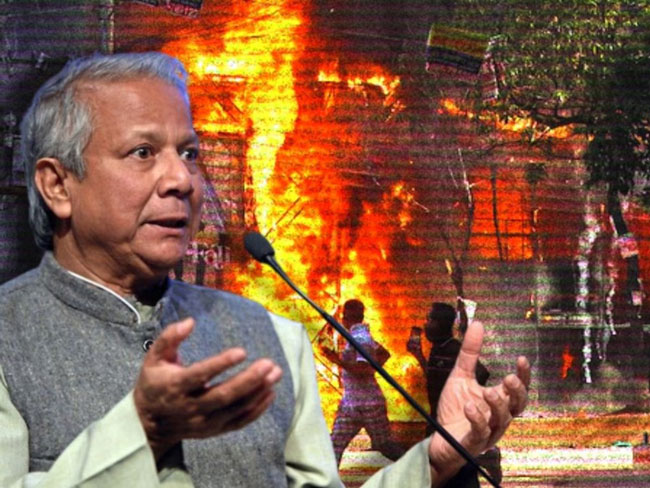Dhaka: Bangladesh’s Interim Government Shifts Toward Conservatism, Questioning Secularism and Bengali Nationalism.
After the overthrow of Sheikh Hasina, Bangladesh’s interim government has shown increasing signs of moving towards conservatism, distancing itself from the secular values and Bengali nationalism that have shaped the nation since its inception. This shift raises questions about the legacy of Sheikh Mujibur Rahman, the country’s founding father, and indicates a growing alignment with ideologies resembling those of Pakistan.
In a recent development, Bangladesh’s Attorney General Mohammad Asaduzzaman stated that secularism is unnecessary in a country where Muslims make up 90% of the population. His comments came during a court hearing about the 15th Constitutional Amendment, which was introduced in 2011 under Sheikh Hasina’s government. This amendment declared Bangladesh a secular state, recognized Sheikh Mujibur Rahman as the “Father of the Nation,” and expanded women’s representation in the political process. The interim government is now preparing to revoke this amendment.
Asaduzzaman argued that it is unnecessary to keep secularism in Article VIII of the constitution, emphasizing that the country’s official religion is Islam. He suggested that the constitution should return to its earlier form, emphasizing “faith in Allah” as the guiding principle. While acknowledging the rights of religious minorities, including Hindus, to practice their faith, he argued that the national identity should align more with Islam rather than secularism.
Additionally, Asaduzzaman called for the removal of Bengali nationalism from Article 9 of the constitution, claiming that the reference to Bengali identity was disrespectful to other linguistic communities that contributed to the country’s struggle for independence. This suggests that the new government may be shifting towards a national identity based more on religious rather than ethnic or linguistic unity.




